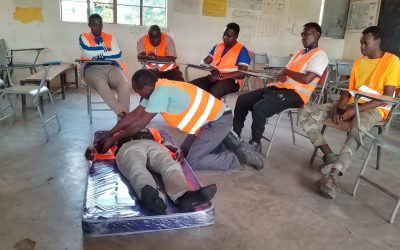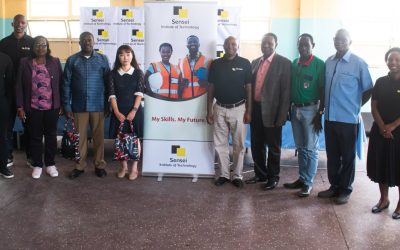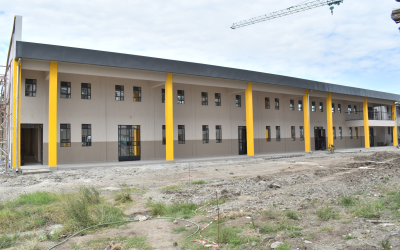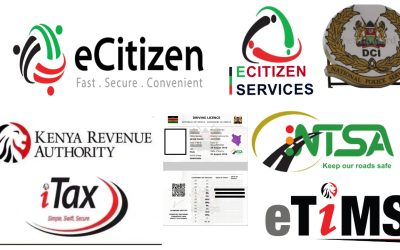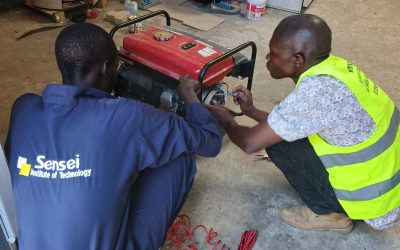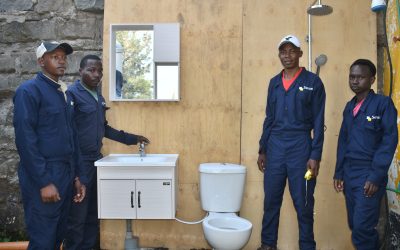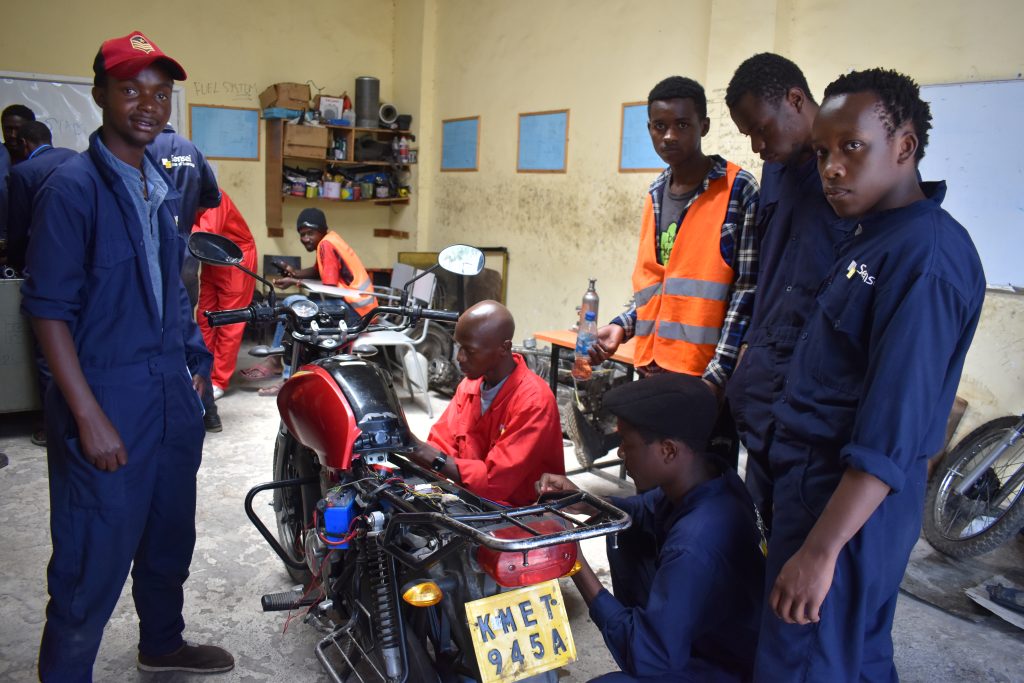
Kenya’s job market rewards skills—and few certifications carry more weight than those issued by the National Industrial Training Authority (NITA). Whether you’re a school leaver, artisan, working adult, or Kenyan in the diaspora interested in supporting skill development back home, understanding NITA’s best courses and the career paths they enable is invaluable.
This article examines top NITA courses, real-world opportunities, and how Sensei Institute of Technology, a fully NITA‑registered trade test centre, plays a leading role in making these certifications accessible and practical.
What Is NITA and Why It Matters
Established under the Industrial Training Act (Amendment) 2011, NITA is a state corporation under Kenya’s Ministry of Labour and Social Protection. Its core mandate is to promote industrial training standards, conduct trade tests, and certify artisans and professionals across technical and vocational fields
NITA oversees craft proficiency, artisan, skills upgrading (SUG), and specialised modules, aligning curricula with national occupational standards. It certifies skills such as welding, plumbing, electrical work, automotive mechanics, graphic design, and more
NITA Course Categories
1. Craft Proficiency Courses
Typically entry-level qualifications (Level 1–2 KNQF) in trades like carpentry, masonry, electrical fitting, and basic IT skills. Ideal for learners with no prior experience.
2. Industrial Artisan Courses
Advanced programs (Level 2–3) in trades such as auto mechanics, welding, plumbing, and bricklaying. These take between 6–12 months and lead to Artisan Grade III or II certifications.
3. Skills Upgrading (SUG) Courses
Short courses (often 3–6 months) designed for people who already have foundational training but want advanced competency in specific areas—such as solar PV installation, motor vehicle servicing, or advanced welding
4. Specialised & Tailored Trainings
Courses of 1–3 months focusing on niche or emerging skills—such as solar PV, PLC, cosmetology, computer programming, or digital media
Top NITA Courses and Career Pathways
Below are notable NITA offerings with strong demand and clear career pathways:
Electrical Trades
- Courses: Electrical Wireman, Solar PV Technician, Electrical Fitter (Levels 2–5)
- Benefits: High demand in construction and renewable energy sectors.
- Career paths: Wiring technicians, solar installers, generator maintenance, self-employment
Automotive & Mechanical Trades
- Courses: Light Vehicle Mechanic, Motorcycle Mechanic, Auto Electrical, Panel Beating, Earth Moving Plant Operation, Motor Vehicle Inspector (Levels 2–5)
- Why choose: Transport and logistics growth creates steady demand.
- Opportunities: Garage technician, fleet maintenance, roadside assistance, start-up roadside businesses
Welding and Fabrication / Machinery
- Courses: Arc Welder, Gas Welder, CNC Machining, High-Pressure Welding, Turning, Sheet Metal (Levels 2–5)
- Employers: Manufacturing, construction, infrastructure, rail, shipyard, engineering firms.
- Career path: Industrial welder, fabrication specialist, machine operator, trainer.
Building Trades
- Courses: Mason, Plumber, Steel Fixer, Tile Layer, Cabinet Maker, Sign Writer, Glazier (Levels 2–4)
- Why these matter: Housing and infrastructure demand keeps these trades busy.
- Paths: Construction workers, tiling contractors, small-scale building business owners.
Agribusiness & Horticulture
- Courses: Flower Grower, Dairy Processing, Poultry Farming, Fish Farm Worker, Apiarist (Levels 2–4)
- Why it works: Kenya’s agricultural economy needs skilled producers.
- Careers: Farm manager, agripreneur, cooperative technician, agribusiness consultant
ICT, Media & Creative Trades
- Courses: Computer Operator, Graphic Designer, Photographer, Videographer, Signwriting (Levels 2–4)
- Advantages: Suited to creative and digital entrepreneurial roles.
- Outcomes: Freelance designer, digital marketer, videographer, content creator.
Personal Care & Cosmetology
- Courses: Hairdressing, Beauty Therapy (Levels 2–5), Childcare, Homecare Assistant
- Reason: Consistent demand comes from urban and hospitality industries.
- Paths: Salon owner, mobile stylist, daycare assistant, hospitality care worker
Career Options by Course Field
| Sector | Typical Jobs | Self‑Employment Potential |
| Electrical | Electrical fitter, solar tech, maintenance engineer | Home solar installation, wiring services |
| Automotive | Mechanic, diagnostician, panel beater | Garage, mobile repairs, plant operation |
| Welding/Fabrication | Fabricator, structural welder, fitter | Small fabrication workshop |
| Building & Plumbing | Mason, plumber, tiling, interior installer | Residential contracting, landscaping |
| Agribusiness | Farm manager, processing technician, agripreneur | Small farms, greenhouse businesses |
| ICT & Media | Designer, video editor, data clerk | Freelance design, social media services |
| Cosmetology & Care | Hair stylist, caregiver, beauty therapist | Home salon, elderly care, daycare facility |
Sensei Institute: A Recognised NITA Trade Test Centre
Sensei Institute of Technology is fully registered and accredited by NITA, TVETA, and NTSA . It is also a designated NITA trade test centre, offering assessments for certification in multiple trades (e.g., welding, plant operations)
Sensei combines industry‑standard infrastructure, modular training, and high trainer quality to deliver practical, recognized courses in areas like:
- Electrical & electronics
- Automotive Mechanics
- Construction Plant Mechanics
- Welding & fabrication
- Building & construction trades
- ICT & computer applications
Their campuses—primarily in Nakuru and Nairobi—offer entry to NITA trade tests and a range of short-skill programmes, complete with hands-on projects and RPL pathways for experienced learners
Why Sensei Stands Out
🔹 Accredited & Licensed
Sensei is registered by TVETA, NTSA, and NITA, ensuring high standards and formal recognition
🔹 Real-World Training
Students work with actual tools, equipment, and real projects—simulating workplace conditions.
🔹 RPL-Friendly
Industry-experienced artisans can apply for Recognition of Prior Learning, accelerating certification through NITA trade tests at Sensei.
🔹 Modular & Flexible Offerings
Courses range from 3‑month short skills to artisan diplomas, suiting learners of various backgrounds.
🔹Career Support
Sensei mentors students on job placement, internship opportunities, and how to start small enterprises.
Student Pathways Using NITA Qualifications
School-Leavers
Start with proficiency or artisan training (Level II–III), then either enter the job market or upskill further via SUG, diplomas, or RPL.
Artisans & Informal Workers
Use RPL at Sensei to convert informal experience into formal NITA certification, opening doors to contracts, public tenders, or apprenticeships.
Working Professionals
Upgrade existing skills with targeted SUG modules—advance in your field without disrupting income.
Kenyan Diaspora
Sponsor modular training back home, support trade tests through Sensei, and help build local capacity via skills investment.
Example: Pathway in Construction Plant Mechanics via Sensei College
- Enroll at Sensei for a 6‑month Welding.
- Demonstrate competencies in hands-on workshops.
- Sit for the NITA Trade Test onsite at Sensei campus.
- Receive NITA Certificate of Competency—valid nationally and recognized by employers.
How to Apply for NITA Courses via Sensei College
- Choose a trade (e.g. Motorcycle Mechanics, Electrical, Construction Plant Mechanics, Welding, Plumbing, ICT).
- Check prerequisites—some courses accept only a national ID; others require prior experience
- Register at NITA or preferred centre (Sensei offers both training and trade test services).
- Complete training, whether full artisan course or upgrading modules.
- Sit for NITA Trade Test—Sensei is an official test centre.
- Receive your certification, and begin working, freelancing, or expanding skills.
For Diaspora Kenyans Considering Investment
If you’re abroad and looking to contribute meaningfully in Kenya:
- Fund NITA‑accredited short courses via Sensei.
- Support trade test fees for talented youth.
- Partner with Sensei to offer internships or mentorship.
- Encourage RPL certification for informal artisans in your community.
These investments help build Kenya’s skilled workforce—and deliver sustainable impact.
Final Thoughts
NITA courses offer a credible and flexible way to gain job-ready skills, regardless of background or academic history. With trade testing and certification recognized across Kenya—and institutions like Sensei Institute offering practical, well‑accredited training—the possibilities are real.
Whether you’re a student, artisan, parent, employer, or diaspora supporter—choosing a NITA course creates opportunities to work, earn, and grow. And with Sensei certified to administer trade tests and deliver modular training, Kenya now has clearer pathways than ever toward technical excellence and career success.
